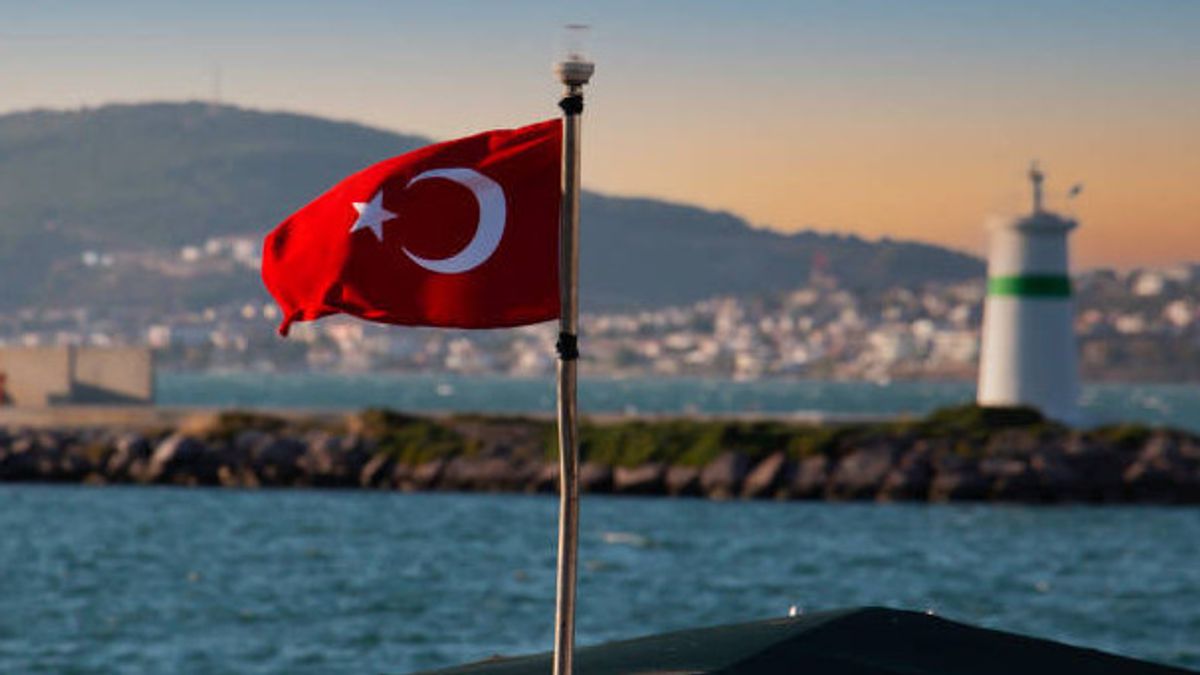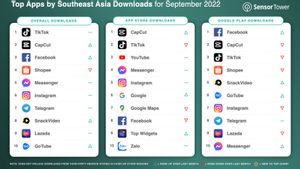JAKARTA - Social media companies are unlikely to fully comply with a new law passed by the Turkish government that requires them to remove "disinformation" content and share user data with authorities. According to analysts, such legislation only raises the specter of a possible platform disruption before the country's general election next year.
Facebook, Twitter, Google and others are required to fully comply with the law by next April or face a possible ad ban. Even the Turkish government threatened to cut their bandwidth. The rules pose a dilemma for companies ahead of elections set for June.
Analysts and consultants say the company has global privacy standards that they are unlikely to violate in Turkey because that could set a dangerous precedent for other countries seeking to exercise control over social platforms.
"Some of these companies don't seem to comply with the law," said Sinan Ulgen, a founding partner at Istanbul Economics, which consults on regulatory and legal matters.
"This is because of the heavy requirements and what that means for their privacy and data confidentiality norms, and also to set a precedent that could be used in other jurisdictions," Ulgen said.
Under the law, which came into effect this week, companies must share user information with authorities if a user posts content they deem to be a crime, including misleading information.
Social media companies are required to appoint representatives in Turkey. They face bandwidth caps of up to 90% immediately following the court's decision if the social media representative fails to provide the authorities with information.
Critics of the law say it could tighten the government's grip on social media. This is one of the last bastions of free speech and dissent in Turkey after 20 years of rule by President Tayyip Erdogan and his ruling AK Party (AKP).
The AKP and nationalist allies backed the law. The opposition has dubbed it the "censorship law" and said it could affect parliamentary and presidential elections next June, which polls suggest Erdogan could lose.
The law was criticized for imposing prison terms on social media users and journalists who spread "disinformation", but it also builds on laws imposed on social media companies in 2020, with much tougher measures.
For example, companies will be held "directly responsible" for content and "unlawful" tags if they do not remove them within four hours of a request from the authorities.
In fact, social media is already being closely monitored in Turkey. Even the public is often judged for posts such as those criticizing Turkey's attacks in Syria or deemed insulting to the president.
A recent Reuters investigation showed how pressure from the authorities and self-censorship have turned Turkey's mainstream media into a tight chain of command of government-sanctioned headlines.
“So far, social media companies have been able to comply with the 2020 law by setting up small corporate entities in Turkey which they can easily withdraw if pressured,” said Yaman Akdeniz, a cyber rights expert and professor at Istanbul's Bilgi University.
“The law was a “soft transition” but now the government has taken it much more seriously with the new bill,” he added. "If you accept all this, become part of law enforcement because the hope is to help in everything."
Companies can be fined up to 3% of their global revenue if they don't comply with the law, as well as the ban on advertising in Turkey.
SEE ALSO:
Akdeniz said authorities might not impose penalties such as throttling access speeds immediately but start with smaller measures such as fines. However, he said the possibility of tougher action was a constant threat to the company.
Twitter declined to comment on its approach to the law. The owners of Facebook, Meta Platform, Google Alphabet, and Tiktok did not respond to requests for comment from Reuters on the report.
Sezen Yesil, Meta's director of public policy for Turkey and Azerbaijan, told a parliamentary commission in June that there was uncertainty about how the law would be implemented.
Pelin Kuzey Karaman, Google's director of government relations and public policy in Turkey, also told the commission that it had made "maximum efforts" to comply with the 2020 law.
"Unfortunately, the efforts we put in at the maximum level of only 1-1/2 to 2 years ago will almost be in vain ... with the bill. As Google, we really see this as a sad development," Karaman said.
Under the new law, providers of over-the-network services such as Meta's messaging app WhatsApp, which is ubiquitous in Turkey, are also required to set up local companies. The law places them under the Information and Communication Technology Authority (ICTA), which can block those apps if they operate without permission.
"I think (the law) is like a wish list - they put whatever they think of there," Akdeniz said. "There are attempts to regulate social media platforms that can serve as legal models for authoritarian regimes."
The English, Chinese, Japanese, Arabic, and French versions are automatically generated by the AI. So there may still be inaccuracies in translating, please always see Indonesian as our main language. (system supported by DigitalSiber.id)













